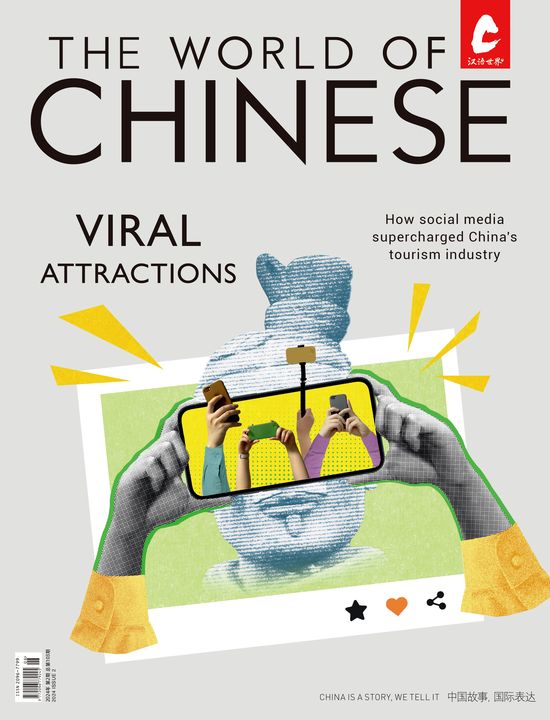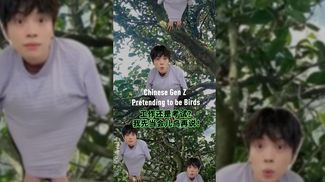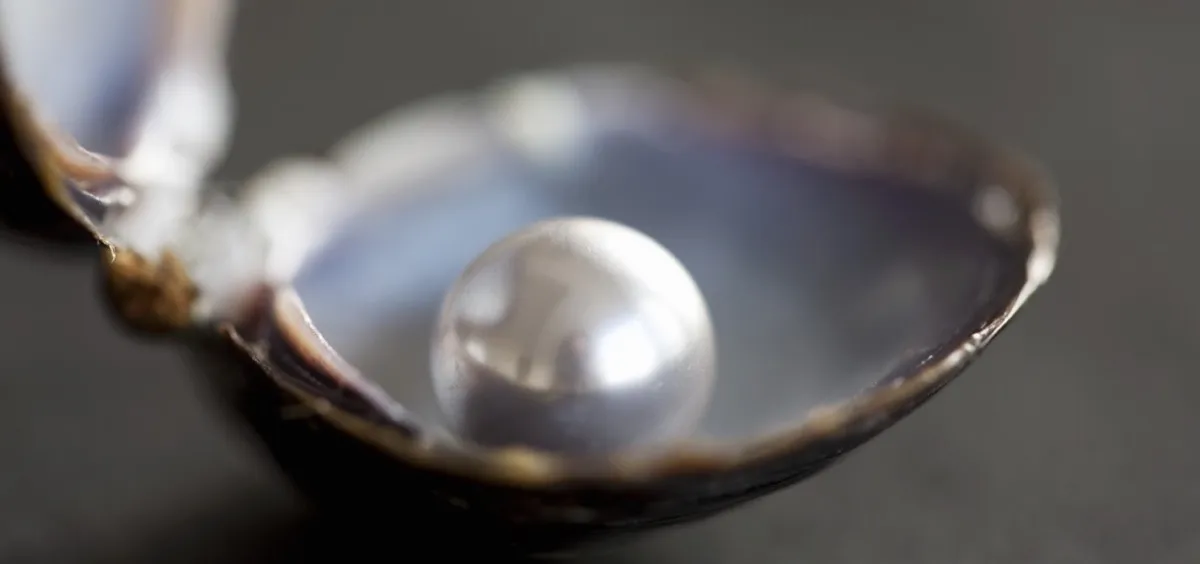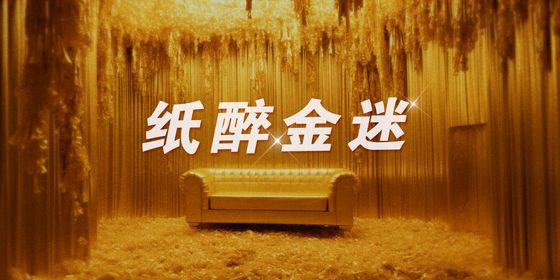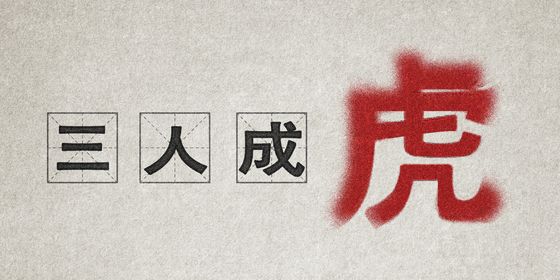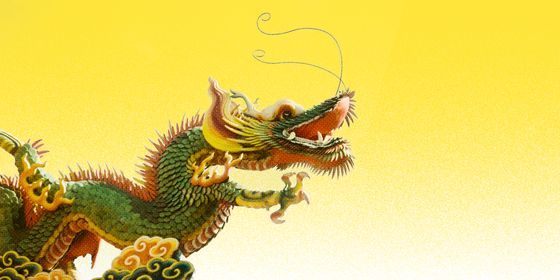Proverbs and idioms about one of China’s favorite jewels
Diamonds may be a girl’s best friend (at least according to Marilyn Monroe), but pearls have a more illustrious history in China as the jewel of choice for the wealthy and powerful, ranking behind only jade in cultural significance.
Known as 珍珠 (zhēnzhū) in Chinese, or simply 珠 (zhū) in ancient times, pearl were regarded as a symbol of happiness, elegance, nobility, and purity. Records show Chinese people wearing pearl accessories from at least 2,000 years ago, while today youngsters enjoy sipping on 珍珠奶茶 (zhēnzhū nǎichá, “pearl” milk tea). Throughout the long history of pearls in China, many idioms relating to their value and beauty have emerged, and are still in use today:
掌上明珠 zhǎngshàng-míngzhū
A pearl in one’s palm
In English, one’s greatest love may be described as “the apple of one’s eye,” and this chengyu carries a very similar meaning. The idiom—”A pearl in one’s palm”—originally appeared in a poem by Fu Xuan (傅玄) in the Jin dynasty (265 – 420), which described a lost love. There are two famous lines: “In the past, you viewed me as a pearl in your palm; why, all of a sudden, do you throw me into a ditch? (昔君视我,如掌中珠。何意一朝,弃我沟渠!)”
Today, however, people use this idiom only to refer to beloved daughters:
He regards his daughter as a pearl in his palm.
Tā bǎ nǚ’ér shìwéi zhǎngshàng-míngzhū.
他把女儿视为掌上明珠。
剖腹藏珠 pōufù-cángzhū
Cut open the stomach to hide a pearl
During the Tang dynasty (618 – 907), the Emperor Taizong recounted a story to several of his officials: In the Western Regions of the Han dynasty (202 BCE – 220 CE), a merchant happened to obtain an incredibly pure and valuable pearl. The man’s love for the pearl was so great that he was desperately afraid it would be stolen, and racked his brain for the perfect hiding place for it. Finally, blinded by his desire for the pearl, the merchant cut open his own belly, and stuffed the pearl inside—naturally, he died soon after.
After telling this gruesome tales, the emperor turned to his officials and said: “Everyone know that the merchant who killed himself to hide a pearl was a fool, but some officials are killed because of their corruption, and some emperors have ruined their own country because they indulged in excessive pleasure. Aren’t they all as foolish as the merchant?”
This story was recorded in Comprehensive Mirror in Aid of Governance (《资治通鉴》), a book on statecraft and history by Sima Guang (司马光) from the Song dynasty (960 – 1279). It gave birth to this chengyu, which now means to sacrifice one’s life for gain or for money, or to put trivial matters above what is important.
Many people have destroyed their health just to earn more money. It’s no different from cutting open one’s stomach to hide a pearl.
Xǔduō rén wèile duō zhuàn yìdiǎn qián ér lèi huài le shēntǐ, zhè wúyì yú shì pōufù-cángzhū.
许多人为了多赚一点钱而累坏了身体,这无异于是剖腹藏珠。
买椟还珠 mǎidú-huánzhū
To buy the case but refuse the pearls
Han Feizi (《韩非子》), a collection of works by the third-century BCE philosopher of the same name, recorded a story of a pearl seller from the State of Chu who came to the State of Zheng to sell his pearls. In order to attract the buyers’ attention, he placed the the pearls in a lavishly adorned case. A buyer, so blinded by the case’s beauty, kept the glittering case but returned the much more valuable pearls to the seller.
The story then became this chengyu, describing people who have poor judgement or make bad decisions.
If you memorize every sentence of an article without interpreting its essence, you are buying the case but refusing the pearls.
Rúguǒ nǐ dú yì piān wénzhāng zhǐ bèi xiàlái jùzi, ér bù lǐjiě tā de jīngsuí, nà děngyú shì mǎidú-huánzhū.
如果你读一篇文章只背下来句子,而不理解它的精髓,那等于是买椟还珠。
老蚌生珠 lǎobàng-shēngzhū
An old clam yielding a pearl
This chengyu emerged from a joke between two close friends. In the Eastern Han dynasty (25 – 220), scholar Kong Rong (孔融) wrote a letter to his friend Wei Duan (韦端) after meeting Wei’s two sons: “A few days ago, I met your son Wei Kang (韦康). He is well-learned and has a distinguished bearing. I am sure he will have a bright future. Yesterday, I met your other son, Wei Dan (韦诞). He is honest, sincere, smart, and erudite, I am sure he can make your family proud in the future. I didn’t expect that an old clam like you could yield such a great pair of pearls! You should cherish them.”
Kong’s joke spread and the idiom 老蚌生珠 has come to refer to having a son in old age.
He had this son at the age of 60. If an old clam yields a pearl, it’s not unnatural for him to spoil the child.
Tā liùshí suì cái yǒu le zhège érzi. Lǎobàng-shēngzhū, nì’ài háizi yě bù qíguài.
他六十岁才有了这个儿子。老蚌生珠,溺爱孩子也不奇怪。
Cover image from VCG
